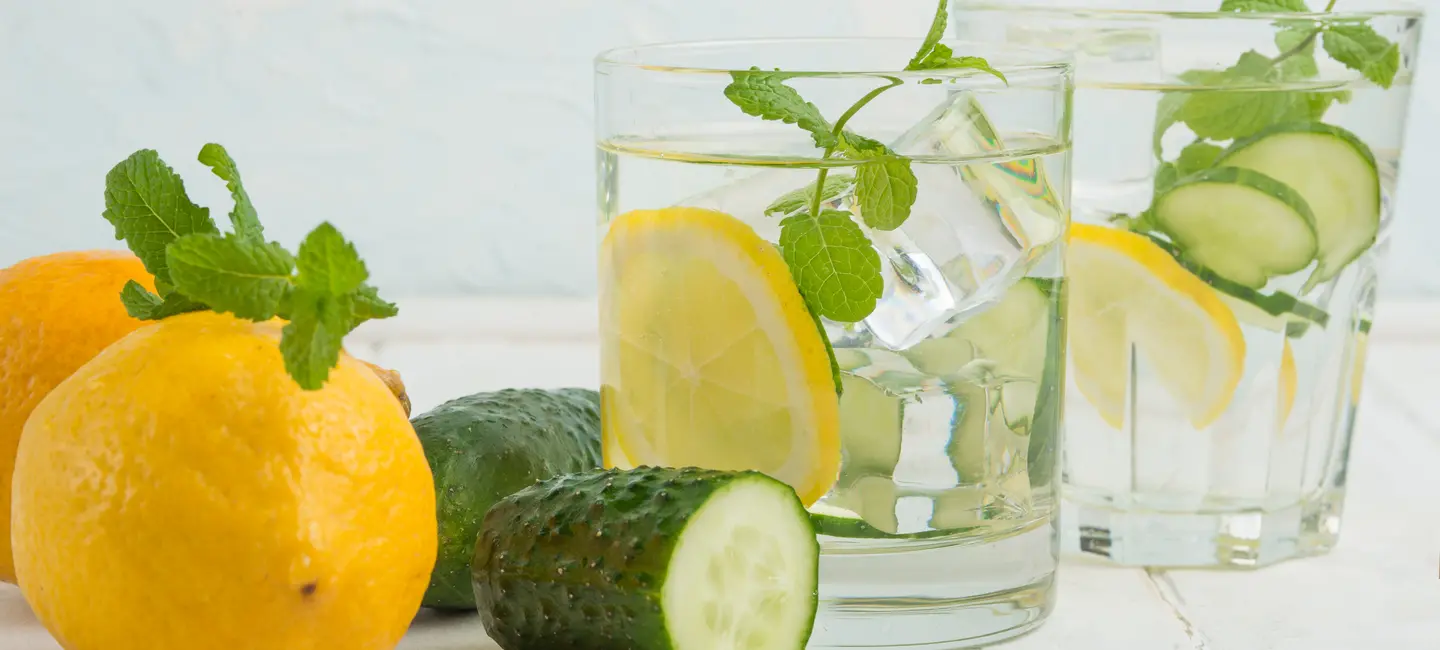
Detoxification refers to the process of removing poisons or toxins from the body. Various detoxification programs are marketed and include herbal supplements, vitamins, minerals, special diets, enemas, and other methods.
Detoxification is used for weight loss, stomach problems, general health and wellness, and other conditions, but there is no good scientific evidence to support these uses. Detoxification can also be unsafe.
Is It Effective?
NatMed Pro rates effectiveness based on scientific evidence according to the following scale: Effective, Likely Effective, Possibly Effective, Possibly Ineffective, Likely Ineffective, Ineffective, and Insufficient Evidence to Rate.
- Obesity. Early research shows that adhering to a specific diet called the Wellnessup detoxification diet for 4 weeks results in a small amount of weight loss. This diet consists of organic fruits, vegetables, nuts, and whole grains and allows only 1225 calories per day. The effects of other detoxification diets on weight loss are unclear.
- Other uses.
More evidence is needed to rate the effectiveness of detoxification for these uses.
Is it Safe?
Some people think that the body accumulates harmful toxins such as metals, pesticides, and other chemicals. They believe that special diets or special treatments including herbals or supplements taken by mouth or rectally are needed to remove these toxins from the body. Some detox protocols include exercise and sauna regimens in addition to supplements.
Some "detox diets" focus on eating foods that contain a minimal amount of chemical contamination such as organic foods. These diets often exclude caffeine and alcohol. They also often emphasize foods with high nutrient content as well as foods with high fiber content. Proponents argue that high-nutrient, high-fiber foods help remove toxic substances.
Some people also believe that normal digestion causes stress. To relieve this stress and allow the body to rest, they fast and drink only water or juice.
There is no scientifically reliable information to support these beliefs. There is no reliable evidence that normal digestion makes the body tired or stressed or that the body retains numerous toxins that are dangerous to health. The kidney and liver filter, process, and remove toxins efficiently.
Some methods of detoxification can cause significant side effects.
When taken by mouth: There are many different types of detoxification diets. One specific diet, called the Wellnessup detoxification diet, is POSSIBLY SAFE when followed for up to 4 weeks. This diet consists of organic fruits, vegetables, nuts, and whole grains. But there isn't enough reliable information to know if other methods of detoxifications are safe. Detox diets that severely limit the types of foods eaten can cause several side effects, such as diarrhea, which can cause fluid loss and dehydration. This is especially true for detox diets that include laxatives.
High-fiber diets sometimes cause constipation. Diets that eliminate or reduce protein intake by eliminating meat can result in mood changes, fatigue, tiredness, and a variety of other symptoms. Long-term fasting can result in vitamin and mineral deficiencies and protein deficiency.
When given as an enema (rectally): Rectally administered coffee enemas are POSSIBLY UNSAFE. They have been linked to at least three deaths. Two of these deaths are related to severe electrolyte imbalance, and a third is associated with infection following the use of coffee enema.
Special Precautions & Warnings:
Pregnancy and breast-feeding: There isn't enough reliable information to know if detoxification is safe when pregnant or breast-feeding. Stay on the safe side and avoid use.
Anemia: People with iron-deficiency or vitamin-deficiency anemia should avoid detoxification programs that restrict food sources that provide iron and vitamins. Dietary restriction of these nutrients could make anemia worse.
Critical illness: Patients with a serious illness such as cancer should avoid detoxification programs that limit the types of food that can be eaten. Restricting nutrients from important food groups could make serious illness worse.
Endocrine disorders: People with diabetes, thyroid disorder, or other endocrine disorders should avoid detoxification programs that require dramatically changing food and calorie intake without appropriate medical supervision. Substantial dietary changes could make these conditions worse or require changes in treatment.
It is not known if this treatment interacts with any medicines. Before using this treatment, talk with your health professional if you take any medications.
There are no known interactions with herbs and supplements.
There are no known interactions with foods.
The appropriate or safe use of detoxification depends on several factors such as the condition being treated or the person administering the treatment. Be sure to seek and follow relevant directions from your physician or other healthcare professional before using this treatment.
Aqua Detox, Body Detox, Coffee Enema, Colon Cleanse, Colon Hydrotherapy, Enema, Desintoxicación, Detox, Detox Diet, Detox Treatment, Détoxification, Diet Detox, Fad Diet, Gallbladder Cleanse, Gallbladder Flushing, Herbal Cleansing, Herbal Detox, Hydrothérapie du Côlon, Jeûne de Jus de Fruits, Juice Fasting, Lavement, Lavement de Café, Liver Cleanse, Liver Flushing, Nettoyage à Base de Plantes, Nettoyage du Côlon, Purification Rundown, Régime Détox, Starvation Diet, Traitement de Détoxification, Water Diet, Water Fasting.
Information on this website is for informational use only and is not intended to replace professional medical advice, diagnosis, or treatment. While evidence-based, it is not guaranteed to be error-free and is not intended to meet any particular user’s needs or requirements or to cover all possible uses, safety concerns, interactions, outcomes, or adverse effects. Always check with your doctor or other medical professional before making healthcare decisions (including taking any medication) and do not delay or disregard seeking medical advice or treatment based on any information displayed on this website.
© TRC Healthcare 2024. All rights reserved. Use and/or distribution is permitted only pursuant to a valid license or other permission from TRC Healthcare.
